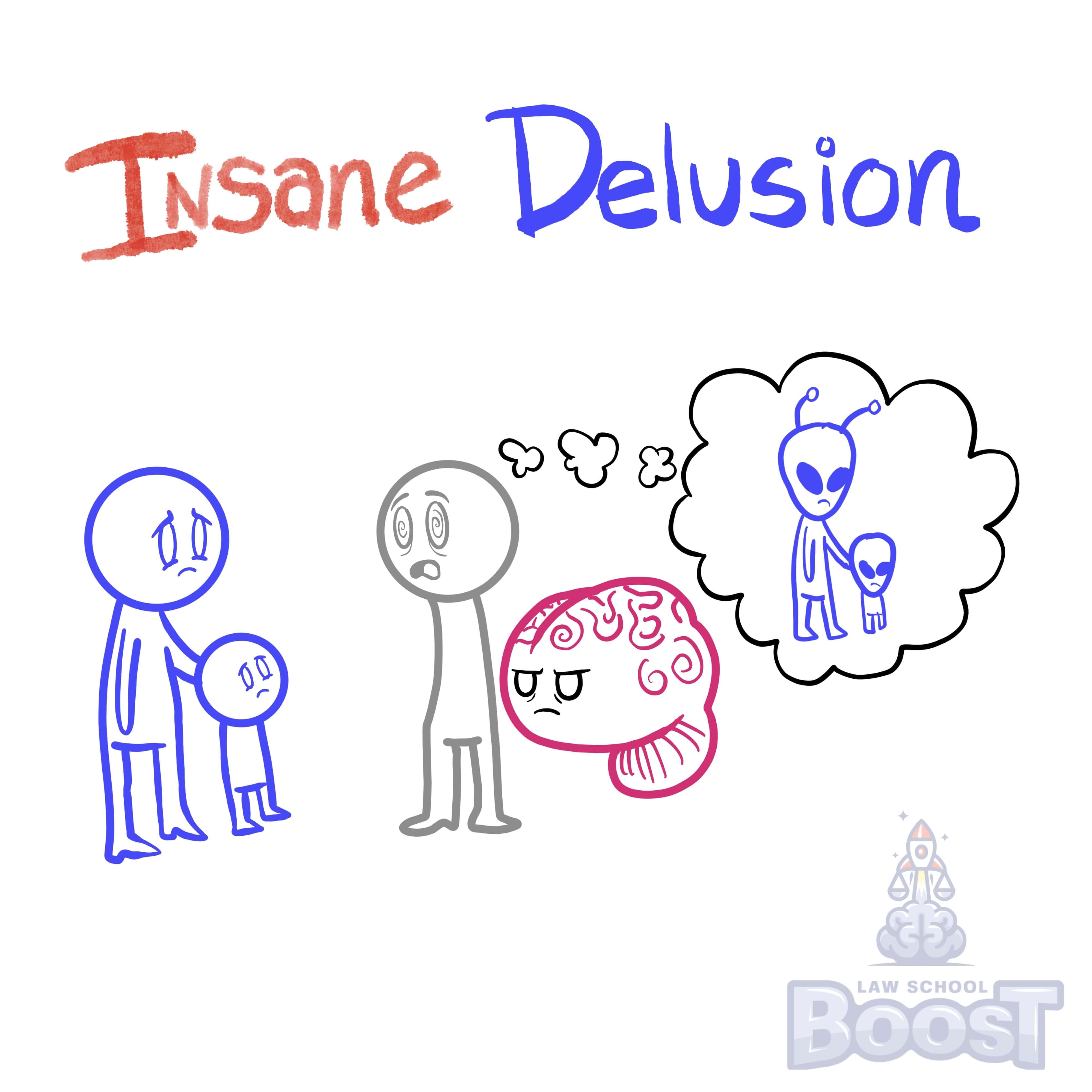😭
Wills • Capacity
WILLS#016
Legal Definition
An insane delusion is a type of incapacity that can invalidate the entire will or a portion of it. It requires: (1) a false belief, (2) which was the product of a sick mind, (3) and no evidence to support the belief, (4) where the delusion affected the will.
Plain English Explanation
The purpose of the will is to capture the genuine desires of an individual before they die so the law can make sure their estate and affairs are handled accordingly. This only applies to people who are capable of genuinely articulating their desires. If an individual suffers from a psychological impairment that obstructs their ability to participate in reality, then the law will be inclined to invalidate their will as a product of their illness.
Hypothetical
Hypo 1: Bob has 6 kids. Bob's estate is worth $10 million. Though Bob has had a history of loving his children, one day he executes a will that chooses to leave 100% of his estate to a political charity. When asked why, Bob responds, "Because I know that my kids were sent here from Mars to try to take over the world, and I don't want my money to help them buy weapons." Result: Here, it is clear that Bob has a false belief, as his kids are obviously not from Mars, nor is there any evidence to support this. Additionally, it is clear that Bob is experiencing some sort of mental break from reality to believe something so crazy. Finally, this belief absolutely affects the will, because instead of providing for his children, he has opted to deny them any amount of the estate and give it all, instead, to a political charity. Thus, it is arguable that Bob has suffered from an insane delusion and the courts should invalidate the will as it does not appropriately reflect what Bob would have wanted had he not fallen victim to his illness.
Visual Aids

Related Concepts
How do you make a prima facie case for undue influence?
In California, can an attorney who drafts a will for their client be a beneficiary?
In California, when is there a statutory presumption of undue influence?
In California, when is there no presumption of undue influence for a donative transfer?
What happens if someone fraudulently prevents someone from creating a will?
What is fraud in the execution?
What is fraud in the inducement?
What is required for valid testamentary capacity?
What is required to establish fraud?
What is undue influence?
What relief is available if mistake in the inducement occurs?
When assessing undue influence, what is the presumption test?
When does a mistake in the execution occur and what is the result?


